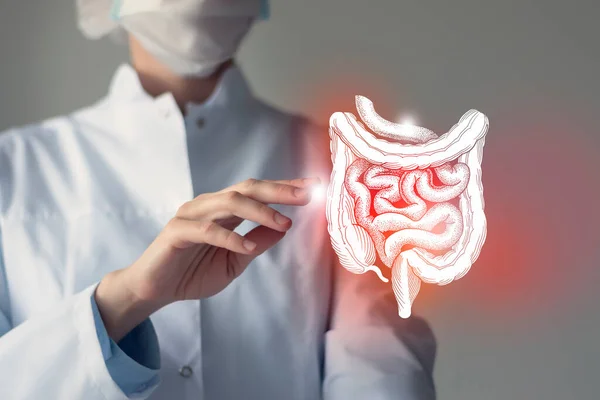Share this @internewscast.com
4 Tips to Manage Diverticulitis Discomfort – Diverticulitis is a condition triggered by the inflammation or infection of small pouches in the colon, known as diverticula, and can cause significant disruption. Although many individuals live their entire lives with diverticulosis, which is merely the presence of these pouches without any symptoms, diverticulitis leads to noticeable discomfort and potential complications. Dr. Prateek Sharma, a medicine professor at the University of Kansas School of Medicine, aptly notes, “Many people have diverticulosis their whole lives without problems, but once those pockets become inflamed or infected, the condition is called diverticulitis.” Learning how to manage symptoms during an episode is crucial for restoring comfort and control.

Who’s at Risk for Diverticulitis?
While diverticulitis can affect anyone, age significantly influences its likelihood, particularly after the age of 40. Contributing factors such as obesity, smoking, a sedentary lifestyle, and diets low in fiber but rich in red meat amplify the risk. Some medications, including NSAIDs, might also increase susceptibility. Although stress isn’t a direct cause, it can exacerbate flare-ups. Intriguingly, research indicates that people with diverticulitis may have higher rates of anxiety and depression—a psychological impact that highlights the need for comprehensive care.
Common Symptoms of Diverticulitis
The symptoms of diverticulitis can range from mild discomfort to severe complications. Here’s what you might experience:
- Persistent abdominal pain, typically on the lower left side
- Nausea and vomiting
- Fever and chills
- Constipation or diarrhea
- Abdominal bloating and tenderness
Severe instances may result in complications like abscesses, bowel perforation, or the formation of fistulas. Early detection of these symptoms can be crucial for effective management of the condition.
4 Self-Care Tips for Managing Diverticulitis Symptoms
Navigating a diverticulitis flare-up requires thoughtful adjustments to your routine. These four self-care strategies can help alleviate pain, bloating, and constipation while promoting recovery:
1. Switch to a Liquid Diet
When your colon is inflamed, giving it a break is essential. Opt for clear liquids like broths, tea, water, and electrolyte drinks during acute flare-ups. This temporary diet helps reduce strain on the digestive system while easing symptoms like bloating and constipation. As your condition improves over a few days, gradually reintroduce low-fiber foods such as white rice or plain crackers before transitioning back to high-fiber options.
2. Apply Heat for Relief
A warm heating pad on your abdomen can work wonders for soothing pain caused by inflammation. It’s a simple yet effective method that pairs well with over-the-counter pain relievers like acetaminophen (but steer clear of NSAIDs as they may worsen symptoms).
3. Stay Hydrated
Hydration is your ally during a flare-up. Drinking plenty of fluids keeps stools soft and easier to pass—reducing pressure on your colon and preventing further irritation.
4. Prioritize Rest
Your body needs time to heal during a flare-up. Avoid strenuous activities like heavy lifting or exercise that could strain abdominal muscles. Resting allows your body to focus its energy on recovery.
When to Seek Medical Attention
While self-care can be effective for mild cases of diverticulitis, certain symptoms signal the need for professional intervention:
- A fever exceeding 100.4°F (38°C)
- Severe abdominal pain or tenderness
- Blood in your stool
- Nausea or vomiting that prevents fluid intake
Doctors may prescribe antibiotics to address infections or recommend imaging tests like CT scans for diagnosis. In rare cases involving complications such as abscesses or perforations, surgery might be necessary.
Preventing Future Flare-Ups
Once you’ve recovered from a flare-up, prevention becomes the next priority. Lifestyle changes can significantly reduce your risk of recurrence:
- Increase Fiber Gradually: Incorporate fiber-rich foods like fruits, vegetables, beans, and whole grains into your meals to promote regular bowel movements.
- Exercise Regularly: Physical activity improves intestinal tone and reduces pressure in the colon.
- Stay Hydrated: Drinking enough water daily complements fiber intake by keeping stools soft.
- Quit Smoking: Smoking contributes to inflammation and worsens overall gut health.
Final Thoughts
Diverticulitis can disrupt daily life with its uncomfortable symptoms—but it doesn’t have to define your health journey. By adopting practical self-care strategies like dietary adjustments, hydration, heat therapy, and rest during flare-ups, you can regain control over your well-being. Knowing when to seek medical attention ensures timely treatment for complications while preventive measures like eating more fiber and staying active pave the way for long-term digestive health.
Taking charge of your health not only helps manage diverticulitis but also empowers you to live more comfortably—even when faced with challenges along the way!
Also Read | Always Feeling Hungry? 5 Common Reasons and Expert Tips to Stay Full Longer
















